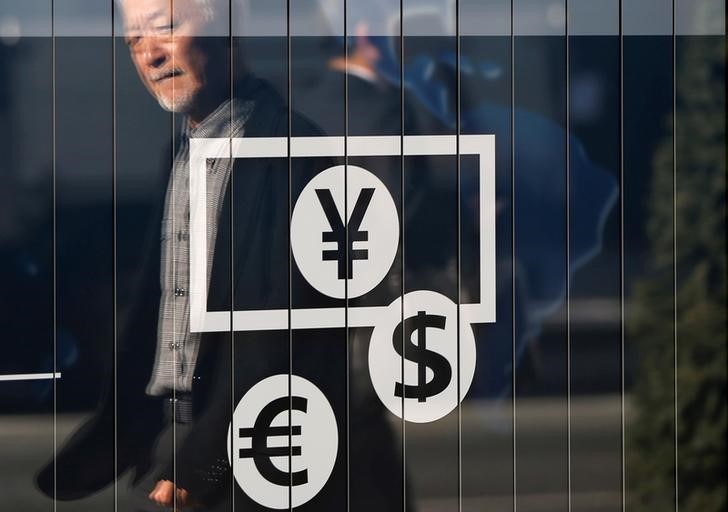By Geoffrey Smith
Investing.com -- The dollar was little changed in early trading in Europe on Wednesday, with the market apparently settling in to wait for the release of U.S. fourth quarter GDP figures on Thursday.
By 03:05 ET (08:05 GMT), the dollar index that tracks the greenback against a basket of six developed market currencies was up less than 0.1% at 101.715.
The figures will cast fresh light on the likelihood of a recession in the U.S. later this year, something that has appeared more likely since last week's retail sales data for December and a succession of gloomy business surveys from the Philadelphia and New York Federal Reserve banks.
The U.S. 10-year Treasury yield is now nearly 120 basis points below the 3-month bill yield, a degree of inversion that has never in the last 100 years failed to indicate a recession. More anecdotal data such as Tuesday's update from 3M (NYSE:MMM) - a diverse supplier of goods to a wide range of sectors in the economy - also predict weaker times ahead. Another servant of the broad economy, Microsoft (NASDAQ:MSFT), also reported its slowest quarterly sales growth in years and warned worse is to come.
Sterling was in focus in early trade, after producer price inflation data that were significantly below expectations, suggesting that the collapse of natural gas prices in recent weeks has finally fed through into the manufacturing sector. Input prices fell 1.1% in December, bringing the annual rate down to 16.5% from 19.2%, its lowest in 10 months. PPI output prices, meanwhile, fell by only 0.8%, a sign that companies still have some ability to defend their profit margins despite a weakening economy.
The pound eased 0.1% to $1.2322.
The U.K. data contrasted with those out of Australia during the Asian session, which showed consumer inflation still running well ahead of expectations. The annual rate of inflation accelerated to 7.8% in the fourth quarter, from 7.3% three months earlier, making it more likely that the Reserve Bank of Australia will have to tighten policy again. That seems all the likelier, given the rebound in external demand for Australian goods due to China's reopening this year.
The Aussie dollar rose 0.8% to a new five-month high of 0.7122.
Market attention is likely to switch to Germany, where the Ifo business climate index is due at 04:00 ET (09:00 GMT). Analysts expect a modest improvement in the headline index to 90.2, which would be a seven-month high.
The euro has run into stiff resistance around $1.0930 in recent days after rallying hard on expectations that the Eurozone's interest rate differential with the U.S. will narrow this year.
